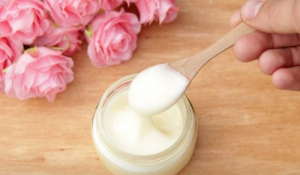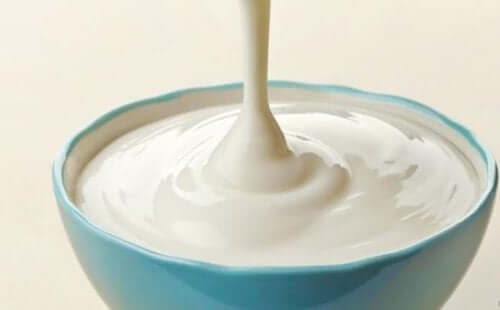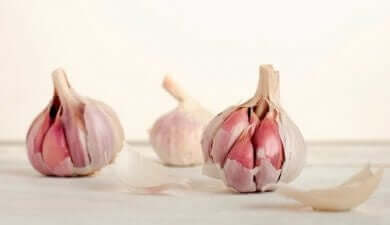Remedies for Vaginal Itching and Burning


Written and verified by the doctor Nelton Abdon Ramos Rojas
Women are much more likely to experience genital infections than men. In general, these infections are accompanied by symptoms such as itching, inflammation, irritation, a burning sensation, and, in some cases, changes in vaginal discharge.
These symptoms can be more intense in women aged 15 to 40. However, it’s important to remember that these symptoms have a variety of different causes:
- Stress
- Eczema
- Psoriasis
- Bacterial vaginosis
- Hormonal changes
- A weakened immune system
- Poor or excessive hygiene
- Bacterial or fungal infections
- Sexually transmitted diseases (STD)
Do home remedies actually work?
According to alternative medicine, there are some natural remedies that can be used to treat bacterial vaginosis, as well as symptoms such as vaginal burning or itching. However, they should never be considered a substitute for pharmaceutical products prescribed by your doctor.
The majority of home remedies recommended by alternative medicine are made up of ingredients that are believed to have antimicrobial properties, and can supposedly aid in the elimination of the underlying cause. However, the effectiveness of these ingredients is often exaggerated.
Let’s take a look at some of the different natural remedies that are often proposed when treating vaginal infections, and whether they actually work.
1. Natural yogurt

One of the most popular home remedies for treating vaginal infections and discomfort is yogurt.
Some believe that the lactic acid and bacteria present in the components of natural yogurt can help to calm vaginal itching and burning and reduce the chances of an infection.
Keep in mind that applying yogurt to the inside of your vagina won’t eliminate a current infection or prevent any further discomfort in the future, even if you use it on a daily basis. There’s no scientific evidence to support the use of this home remedy.
Read more: Consuming Yogurt When Having Diarrhea: Is It Okay?
2. Vaginal remedies: apple cider vinegar
The belief that apple cider vinegar has antibacterial and antimycotic properties and that you can use it to eliminate bacteria and fungi, as well as regulate the natural pH of the vulva has become popular in recent years. However, doctors would not recommend using this remedy under any circumstances, not even as a complement to your ongoing treatment.
The topical use of vinegar can cause adverse skin reactions, especially in the genital area.
3. Garlic

One of the biggest misconceptions circulating on the internet at the moment is the idea that garlic contains powerful antibacterial and antibiotic properties, capable of eliminating the bacteria and yeasts involved with vaginal infections.
So far, however, there is not sufficient evidence to support these claims. As such, we would not recommend using garlic to treat any discomfort or infection.
Applying vitamin E serum, yogurt, or garlic to your genitals will not eliminate infection or boost your immune system.
Discover: Fruit that Helps Eliminate Toxins
Recommendations for preventing vaginal itching and burning

- Clean the vagina from front to back
- Take a shower after exercising and be sure to dry yourself thoroughly
- Avoid scratching the area to avoid further irritation
- Use cotton underwear, and change it at least twice per day if you are suffering from a vaginal infection
- Avoid wearing damp clothes, as excessive humidity can make itching worse
- If possible, sleep without underwear until the itching disappears
- Avoid bubble baths, perfumed sanitary pads, and vaginal lotions. Instead, use pH-neutral soap to avoid altering the vagina’s natural pH.
Before using any remedy, it’s always best to consult with a doctor and follow their instructions carefully. Remember, though it might not seem like it, applying foodstuffs such as yogurt or garlic to an area as delicate as the vagina can cause serious adverse side effects, and will ultimately make matters worse. It’s important to be wary of any “magical” natural remedies online that promise fantastic results.
However, if you have tried all of the above remedies and still haven’t noticed any improvement, it’s very important to consult with a trusted gynecologist in order to undergo a full examination and diagnosis.
All cited sources were thoroughly reviewed by our team to ensure their quality, reliability, currency, and validity. The bibliography of this article was considered reliable and of academic or scientific accuracy.
- Darvishi, Maryam et al. “The Comparison of vaginal cream of mixing yogurt, honey and clotrimazole on symptoms of vaginal candidiasis” Global journal of health science vol. 7,6 108-16. 3 Apr. 2015, doi:10.5539/gjhs.v7n6p108
- Bitew, Adane et al. “Prevalence of Bacterial Vaginosis and Associated Risk Factors among Women Complaining of Genital Tract Infection” International journal of microbiology vol. 2017 (2017): 4919404.
This text is provided for informational purposes only and does not replace consultation with a professional. If in doubt, consult your specialist.








